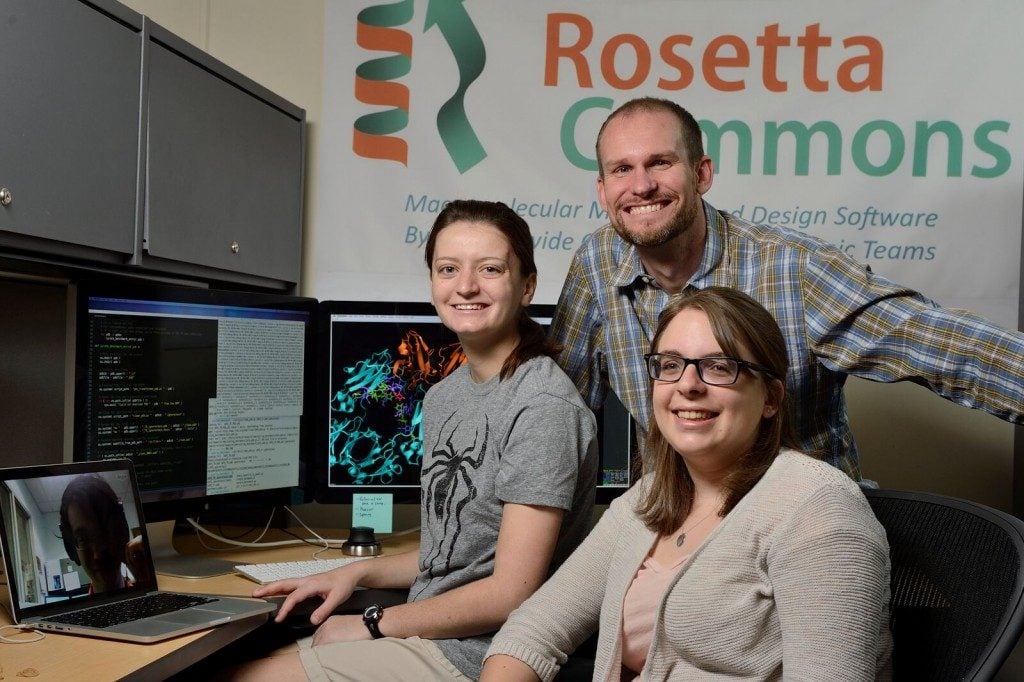Rosetta Commons Research Experience for Undergraduates Program
Interns in this geographically-distributed REU program have the opportunity to participate in research using the Rosetta Commons software. The Rosetta Commons software suite includes algorithms for computational modeling and analysis of protein structures. It has enabled notable scientific advances in computational biology, including de novo protein design, enzyme design, ligand docking, and structure prediction of biological macromolecules and macromolecular complexes. This REU program is supported by the National Science Foundation.
Johns Hopkins University is a member of Rosetta Commons. It is a collaborative group of laboratories, institutes, research centers, and corporate partners in the US and abroad that develop software to understand, predict, and design biomolecules including proteins and nucleic acids. For project information and the application go to the Rosetta Commons Website.

Program
Students will spend one week at the Rosetta Code School where they will learn the inner details of the PyRosetta and community coding environment. The remaining 8 weeks will be spent in various labs across the country doing hands-on research. The summer will finish with a trip to the Rosetta Conference in the Cascade Mountains of Washington State, where students present their research in a poster and connect with Rosetta developers from around the world. Students will also engage in weekly virtual journal clubs and writing and presentation training. Interns receive housing, travel expenses, and a stipend.
Eligibility
- College sophomores or juniors preferred.
- Major in computer science, engineering, mathematics, chemistry, biology, and/or biophysics.
- Availability for at least 10 weeks during the summer.
- Strong interest in attending graduate school.
- US. citizens and non-citizens accepted.
- While not required, we seek candidates with some combination of experiences in scientific or academic research, C++/Python/*nix/databases, software engineering, object-oriented programming, and/or collaborative development (git).
Application
The application cycle starts November 1 and closes February 1. Application materials are:
- Resume
- College Transcript
- Personal statement. Please include a brief summary of your research and computing experience, and answer why you think you are a good candidate for the position and why this internship interests you. Your statement should not exceed 4000 characters.
- Two references (complete the reference forms with contact information)
Students from underrepresented racial/minority groups in STEM are encouraged to apply.
Past Projects
- “Computational design of stimulus-responsive enzymes for therapeutics”
- “A hybrid, integrative approach to build high-resolution structural models of amyloid protein aggregates in neurodegenerative diseases”
- “Glycoengineering for immunotherapy and biofuels”
- “Designing a fluorescent biosensor for DNA crossovers”
- “Design of self-assembling protein nanomaterials: three-dimensional crystals”
- “Computer-based Design of Dengue Virus Vaccine Antigens”
- “Rosetta Computer Aided Drug Design”


